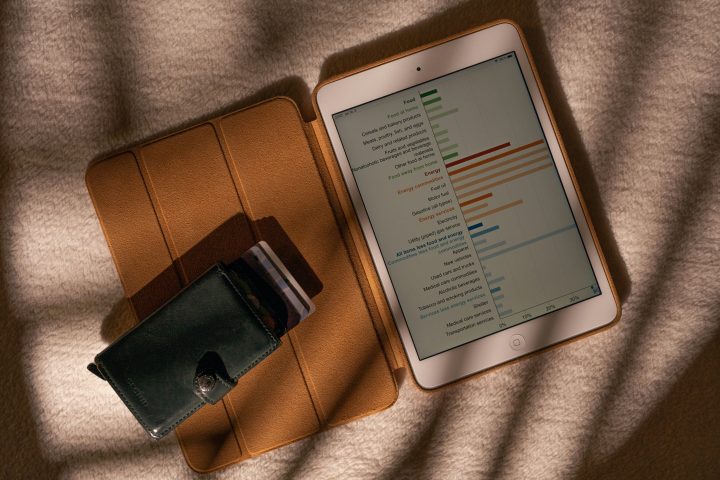Customer relationship management (CRM) software for accounting professionals is designed to help accountants, certified public accountants, and bookkeepers manage work tasks like invoicing and billing. Using a CRM to manage both clients and their billing needs in a single platform that’s accessible to sales and marketing teams as well as the accounting department offers increased efficiency and overall cost savings.
We’ve compiled a complete guide to CRM software for bookkeepers, discussing the features that will benefit practicing CPAs or bookkeepers and the different types of CRM software you can choose from.
What is a CRM software?
A CRM (customer relationship management) system is a tool used to manage all of your relationships with clients and prospects. From the moment a new client or contact comes on board, you can enter basic information like contact info, their birthday, areas of interest or past history working with your company.
This information can be used to gather further information over time, like other contacts they may know, or news about their business that might be relevant to your firm.
CRM software can help automate these processes by updating the CRM with the latest information when there are changes to your files, saving you time and increasing your accuracy.
Bookkeeping CRM Software
Bookkeeping CRM applications are designed to be used by the bookkeeping department in an accounting firm, or by individuals who like to keep their own records. A bookkeeping CRM can store client contact information, client financials (either budgeted or actual amounts), and billing information.
Bookkeeping CRM software is similar to accounting software in that it provides time tracking capabilities for contractors. When working with a client, you can also track the hours that you put into each project. Companies using bookkeeping CRM software can also send out invoices to clients using their own software. Like accounting applications, some other bookkeeping CRM packages let clients enter their own payments electronically, reducing paperwork.
Bookkeeping CRM software isn’t really synonymous with accounting software, because it isn’t generally used by accounting departments. Rather, it is a dedicated piece of software for a specific need.
Why offer both accounting and bookkeeping CRM software?
Traditionally, accounting and bookkeeping CRM packages have been purchased separately. CRM software is finding its way more and more into accounting applications, but individual packages specifically designed to manage accounting client relationships continue to be popular.
Bookkeeping CRM software generally has a different purpose than accounting software. The bookkeeping CRM is geared to assisting the bookkeeper in organizing client records and billing for the bookkeeper. An accounting application can be used for this purpose as well but it may not go into quite as much detail in some respects. That makes a bookkeeping CRM more functional in some regards when it comes to keeping client records.
But where accounting software for bookkeepers is a bit lacking is in managing the overall billing process at the firm. Because a bookkeeper is usually not tasked with setting the pricing of an accounting practice, or tracking marketing activity, an accounting CRM may not be the right solution.
A bookkeeping CRM is a little more hands-on when it comes to creating client records and keeping in contact with clients. They can also help manage invoices and the billing process from beginning to end. Working with multiple clients can be confusing, and time consuming, without help, particularly for a small business owner.
Advantages of a bookkeeping CRM vs. accounting CRM
A total accounting software package, like our modern and complete cloud-based software solution, can be a great choice for any firms offering both bookkeeping and accounting services. Not everyone needs both. But if you are seeking assistance with organization, a bookkeeping CRM is a great solution.
If you happen to be in the market for a new CRM software package for your accounting practice, but it’s not a large group of accountants working together, an accounting CRM service is probably the best solution. It can be easy to get lost in the details of a bookkeeping CRM if you aren’t the bookkeeper. It’s somewhat of a perfect storm for businesses that include both bookkeeping and accounting services under one roof.
In either situation, a bookkeeping CRM can still be useful. These packages are designed in a way that makes them very easy to use. Even if you aren’t doing a lot of accounting at your firm, you can still use the bookkeeping CRM to manage your projects and organize your client records.
How can CRM software help bookkeepers?
What sets a bookkeeping CRM apart from an accounting CRM is that the former is a little more specific to bookkeepers. They’re designed to help you do your job well and easily, and there are a lot of features that are intended to streamline your activities, and your interaction with clients.
CRM software can be helpful for bookkeepers in a variety of ways, including:
Assistance with communication: A CRM is a tool that keeps you organized, so it’s easier to keep in contact with the right people. You can set up templates for letter and email responses to help ensure that you are sending the right message, like whether or not you can take on more work, or multiple similar messages.
A CRM is a tool that keeps you organized, so it’s easier to keep in contact with the right people. You can set up templates for letter and email responses to help ensure that you are sending the right message, like whether or not you can take on more work, or multiple similar messages. CRM software can provide audit support. A CRM can help you keep an eye on what’s going on with a client’s accounts and billing. If you work with older clients, or clients with complex financial situations, a CRM can be a useful tool to ensure that every line of their bill is accurate, and that you’re being paid for every service you provide.
A CRM can help you keep an eye on what’s going on with a client’s accounts and billing. If you work with older clients, or clients with complex financial situations, a CRM can be a useful tool to ensure that every line of their bill is accurate, and that you’re being paid for every service you provide. CRM software can help with communication with fellow service providers. When working with other people like attorneys or CPAs, you don’t have to worry about coordinating multiple calendars and communications platforms. A CRM is designed for collaboration, and it can help centralize all communication in a single location, so you always know exactly where to look for important information.
When working with other people like attorneys or CPAs, you don’t have to worry about coordinating multiple calendars and communications platforms. A CRM is designed for collaboration, and it can help centralize all communication in a single location, so you always know exactly where to look for important information. CRM software helps you manage billing time. This is helpful because it can be easy to let work go unfinished if it’s not assigned to a project.
This is helpful because it can be easy to let work go unfinished if it’s not assigned to a project. CRM software can save time. CRM software does a lot of the work for you — like saving you from losing time tracking down specific information and information about your client. It can also allow you to be more efficient with your time.
CRM software does a lot of the work for you — like saving you from losing time tracking down specific information and information about your client. It can also allow you to be more efficient with your time. CRM software can send reminders. This allows you to stay on top of important deadlines and due dates. It can be a big help to you in keeping track of the flow of bills from client to client.
This allows you to stay on top of important deadlines and due dates. It can be a big help to you in keeping track of the flow of bills from client to client. CRM software can collect information. A CRM is a great way to store all the information about your clients, including notes, documents you’re working on for clients, and accounting data.
A CRM is a great way to store all the information about your clients, including notes, documents you’re working on for clients, and accounting data. CRM software can help you train new employees. You can set up training modules to keep new employees on track. Just like you, they can benefit from a CRM-based training program.
You can set up training modules to keep new employees on track. Just like you, they can benefit from a CRM-based training program. CRM software can help you create and sell packages. You can add custom items to packages to help your clients get exactly what they need for the price they want to pay.
You can add custom items to packages to help your clients get exactly what they need for the price they want to pay. CRM software can help you decrease time wastage. It does a lot of the work for you, so you can work smarter, not harder, and save time and money.
Advantages of Employing CRM for Bookkeepers
You might ask what makes bookkeeping CRM so different from an accounting CRM?
Check out this list of features when you have a closer look into the accounts’ for us.
Advantages for Customers
An advantage of employing an accounting CRM as a bookkeeper is that it can enhance your customer’s experience when they interact with you. This is especially true for the following:
Would you like to create an effective accounting CRM for your business with Xero? Here is the link to the step-by-step guide on how to make it happen.
You can eliminate redundant customer information. A CRM system takes control of all of the information about a client, making it easier for you to give your customers more personalized service.
A CRM system takes control of all of the information about a client, making it easier for you to give your customers more personalized service. You can connect with your customers at the right time. CRM takes advantage of a customer’s responses to messages to determine when the right time is to come in contact.
CRM takes advantage of a customer’s responses to messages to determine when the right time is to come in contact. You can provide reminders and instructions. When you have all your customer information in one place, you can focus on providing reminders, instructions, and updates to them in real time.
Advantages for Bookkeepers as Business Owners
As a bookkeeper, using a CRM system can help you with the following:
- Easier billing. An accounting CRM can help you reduce errors and speed up the billing process. This helps you work with your customers more efficiently.
- An accounting CRM can help you reduce errors and speed up the billing process. This helps you work with your customers more efficiently. Knowledge management. A bookkeeping CRM organizes all of the information about your business in one place. This makes it much easier for you to take action when you need to.
- A bookkeeping CRM organizes all of the information about your business in one place. This makes it much easier for you to take action when you need to. Workflow management. You can also use an accounting CRM to manage tasks and projects, and ensure that everything is being done in a timely manner. This makes it easier for you to provide high-quality service consistently.
Conclusion
If you’re a bookkeeper, having a CRM can benefit your business in many ways. It will help you remember important dates and details, increase your efficiency, decrease your time-waste and error rate, and better connect with your clients. Ultimately, it can help you grow your bookkeeping business.










